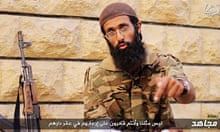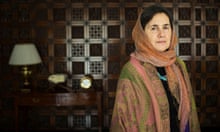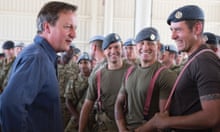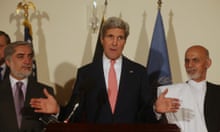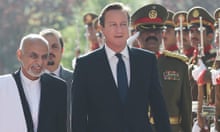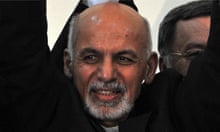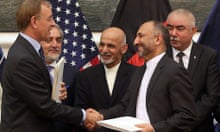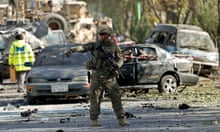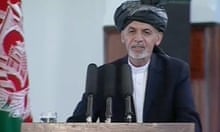After an exhausting and contentious election process, Ashraf Ghani, a US-educated anthropologist turned reformist politician, has finally been sworn in as president of Afghanistan in the first peaceful transfer of power since the fall of the Taliban in 2001.
“I am no better than you,” Ghani told an audience of 1,400 guests, including approximately 200 foreign dignitaries at the Arg, the presidential palace. “If I do something the proper way, support me. If I do something wrong, guide me,” he continued, quoting Abu Bakr, Sunni Islam’s first caliph.
Ghani has signalled that his presidency will mark a new beginning. The new president will lead Afghanistan through a difficult transition as international forces prepare to withdraw. And as a first step, Ghani has pledged to do what his predecessor, Hamid Karzai, refused to do, and sign a deal on Tuesday to secure a continuation of international military assistance to Afghanistan after 2014.
The Afghan security forces could protect Afghanistan, Ghani said at the ceremony. “But we need assistance from the international community.”
On inauguration day, security in Kabul was suffocating. Low-flying helicopters circled the city and roadblocks gridlocked traffic. Despite the precautions, an insurgent killed four Afghan troops and wounded three civilians in a suicide attack near Kabul airport, according to the interior ministry.
For Ghani, the inauguration caps a long journey through a remarkable academic spell in the United States, a decade working for the World Bank and several stints in important administrative posts in the Karzai government, during which he says his mind was always on how to reconstruct Afghanistan. He has declared that his first reforms will aim to improve the rule of law and fight corruption.
“We will not tolerate administrative corruption in national institutions,” he said to loud applause
To some western observers, this was a welcome message. Richard Stagg, the British ambassador to Kabul, who attended the inauguration, said: “For Afghanistan to develop further, it needs to build its economy, and it can only do this by addressing corruption, increasing revenue, and helping investors, both Afghan and international, feel secure.”
However, Ghani, who is a vocal critic of how international aid is delivered, stressed that the international community needed to “rethink its strategies” as well.
In an rare emotional moment, Ghani choked up as he thanked his wife, Rula, who has been by his side at many campaign rallies. Acknowledgement of one’s wife, let alone promising the public that she will have influence, is almost unheard of in Afghan politics.
Ghani also embraced his election opponent, Abdullah Abdullah, with whom he has agreed to form a government of national unity.
In his last speech as the country’s leader, Karzai hailed Ghani’s victory as the first peaceful and democratic transition in Afghan history. He also struck a conciliatory tone with the international community, thanking it for its long support.
There was, however, some bitterness amid the festivities. Even after an internationally monitored ballot audit, ambiguity over the result still lingers. European and American officials have said the control process was less rigorous than they had hoped for, a complaint echoed repeatedly by Abdullah’s team.
Until the last minute, Abdullah himself threatened to boycott the inauguration, reportedly unhappy with the election commission’s decision to print the final vote count on Ghani’s winner’s certificate, despite an agreement to keep the tally secret.
While this seemingly small dispute was eventually resolved, the knee-jerk boycott threat does not bode well for the government’s ability to cooperate in the future.
“Prior to today we had at least one person who could be an intermediary, and that was President Karzai. But after today it is just up to Dr Ghani and Dr Abdullah,” said Haroun Mir, a political analyst in Kabul. “Nobody is enthusiastic about this national unity government.”
The coalition idea is also unpopular with some Afghan voters, who believe the backroom haggling leading up to the deal was undemocratic. “The nation doesn’t know what the candidates did behind the curtain,” said Ahmad Basir Ahmadi, 48, an electronics engineer.
The longevity of the government now depended on whom Ghani took with him to the palace, said Mir. If his key aides were willing to compromise, reforms could be successful. If they were not, the government could break apart quickly, he said.
